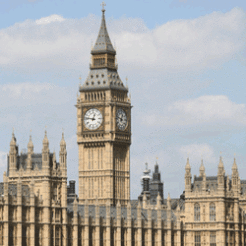Politicians have called for the accelerated abolition of the Edited Electoral Register by 2014-2015, but fundraisers are concerned it could leave them without a way to check the details of potentially valuable direct mail supporters.
The Institute of Fundraising has expressed alarm at a report by the Select Committee for Political and Constitutional Reform released on Friday. The organisation fears it could undermine charities’ ability to check their data for direct marketing campaigns.
The report, which is a response to the draft bill on Individual Electoral Registration, proposes the current registration system be replaced by one in which individual voters register, a likelihood floated nearly a decade ago but one which will likely be sped up by the passing of the bill.
Individual voter registration as a concept enjoys bipartisan support. It was first mooted under the previous Labour government and the Conservative-Liberal Democrat coalition have expressed eagerness to get the reforms into place soon. “The principle of moving to individual electoral registration is widely accepted. It was first recommended by the Electoral Commission in 2003 and subsequently by the Committee on Standards in Public Life in 2007,” the report reads.
The Institute of Fundraising has been campaigning against this move, and its policy advisory board chair Mike Wade spoke out on Friday. “It is important that charities continue to have access to the Edited Electoral Register,” said Wade, also director of fundraising and communications at the National Deaf Children’s Society.
“The data it holds enables charities to fundraise more effectively. Charities are able to verify the information they hold on their databases and improve the accuracy of their mailings. This helps to cut down the volume of unwanted mail sent by charities, ensuring the maximum amount can go to the charity’s work.”
The government estimates the cost of changing the system at £108.3m. The commitee heard its final evidence session on the subject in mid-October.
Abolish Edited Electoral Register in three years, says report
Politicians have called for the accelerated abolition of the Edited Electoral Register by 2014-2015, but fundraisers are concerned it could leave them without a way to check the details of potentially valuable direct mail supporters.









